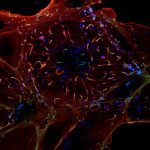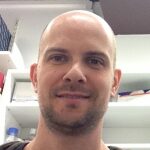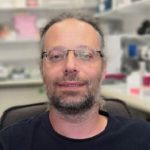Présentation
Aging is multifactorial, resulting in a progressive loss of regenerative capacity and tissue function while simultaneously favoring disease development. There is strong evidence that one or more basic aging process is a pivotal driver of these changes. Intervening into a basic aging process, rather than treating age-related diseases as monolithic entities, would profoundly improve modern medicine in a causative and economic way (“one mechanism – multiple diseases”). There is a growing consensus that cellular senescence is one such basic aging process that strongly contributes to health deterioration and thus impedes healthy aging.
Cellular senescence arrests proliferation in response to numerous stimuli. The arrest is essentially permanent and accompanied by widespread changes in chromatin structure, metabolism and gene expression, including a senescence-associated secretory phenotype (SASP) – the expression and secretion of inflammatory cytokines, growth factors, proteases and other factors that can promote immune clearance of senescent cells, reinforce or block senescent phenotypes in an intra/autocrine fashion or alter tissue and systemic milieus (paracrine senescence, inflammation and other outcomes).
Among the prominent senescence-inducing stimuli are intrinsic and extrinsic sources of genomic and epigenomic damage, activated oncogenes (oncogene-induced senescence, OIS), reactive oxygen species (ROS) and some medical interventions, including anti-cancer drugs (therapy-induced senescence, TIS). Importantly, these stimuli are strong risk factors for declining regenerative potential and age-associated pathology.
Senescent cells are now considered major contributors to health and age-related illnesses. What is lacking is a comprehensive qualitative and quantitative assessment of the senescent phenotypes of various cell types in culture and tissues, and in response to different stimuli and physiological contexts. Additionally, detailed analyses of the extent to which senescence plays a causative role in health, aging and age-related disorders is lacking.
Our projects will address these important knowledge gaps, using an integrated, multifaceted approach combining state-of-the-art genome-wide gene expression and chromatin structure studies, functional genomics, and human tissues analyses to determine how cellular senescence contributes to organismal health and age-associated pathology.





